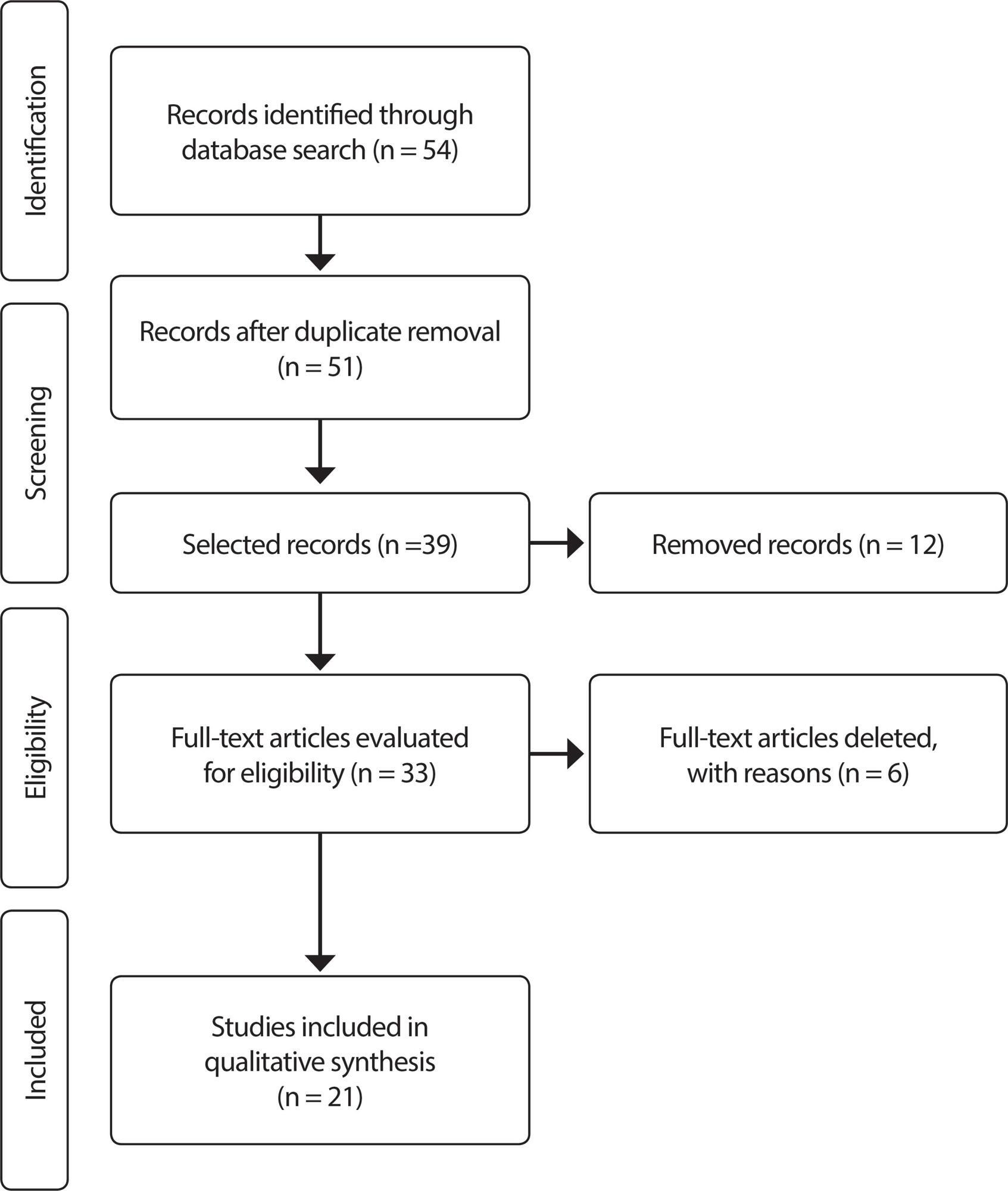-
REVISÃO
Masculinities of prostate cancer survivors: a qualitative metasynthesis
Revista Brasileira de Enfermagem. 2019;72(1):231-240
01-01-2019
Resumo
REVISÃOMasculinities of prostate cancer survivors: a qualitative metasynthesis
Revista Brasileira de Enfermagem. 2019;72(1):231-240
01-01-2019DOI 10.1590/0034-7167-2017-0730
Visualizações0Ver maisABSTRACT
Objective:
To identify the production of knowledge in the health literature about masculinities in the context of prostate cancer survivors and to analyze the implications of this relationship for the maintenance of health care.
Method:
Metasynthesis of 21 qualitative studies, performed in the LILACS, MEDLINE and CINAHL databases, with the scientific descriptors of DeCS and MeSH terms masculinity, prostate neoplasms.
Results:
Illness due to prostate cancer imposes numerous changes in male relationships, especially the non-dominance of the body and vulnerability to treatments and their consequences. The cultural values surrounding the disease and the hegemonic behaviors have implications for the health care of men.
Conclusion:
It has been shown that this relationship makes it difficult to communicate about the disease, marital relationships and family support, mainly influencing neglect of health. The knowledge produced is useful to promote the engagement of men in strengthening care.
Visualizações0

Resumo
REVISÃOMasculinities of prostate cancer survivors: a qualitative metasynthesis
Revista Brasileira de Enfermagem. 2019;72(1):231-240
01-01-2019DOI 10.1590/0034-7167-2017-0730
Visualizações0Ver maisABSTRACT
Objective:
To identify the production of knowledge in the health literature about masculinities in the context of prostate cancer survivors and to analyze the implications of this relationship for the maintenance of health care.
Method:
Metasynthesis of 21 qualitative studies, performed in the LILACS, MEDLINE and CINAHL databases, with the scientific descriptors of DeCS and MeSH terms masculinity, prostate neoplasms.
Results:
Illness due to prostate cancer imposes numerous changes in male relationships, especially the non-dominance of the body and vulnerability to treatments and their consequences. The cultural values surrounding the disease and the hegemonic behaviors have implications for the health care of men.
Conclusion:
It has been shown that this relationship makes it difficult to communicate about the disease, marital relationships and family support, mainly influencing neglect of health. The knowledge produced is useful to promote the engagement of men in strengthening care.



Busca
Pesquisar em:
PALAVRAS-CHAVE
Aged Atenção Primária à Saúde COVID-19 Cuidados de Enfermagem Educação em Enfermagem Educação em Saúde Enfermagem Estudos de Validação Health Education Idoso Mental Health Nursing Nursing Care Patient Safety Primary Health Care Qualidade de Vida Quality of Life Saúde Mental Segurança do Paciente Validation Studies

